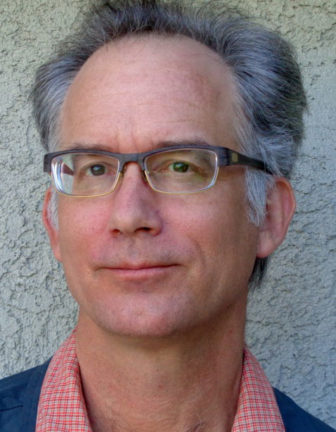
Disappeared: Journalist Jamal Khashoggi apparently entering the Saudi consulate in Istanbul.
The world is following the assassination of journalist Jamal Khashoggi with rapt attention because it is such an overreach by a nation state. The egregiousness of this crime demands a just punishment that will limit the likelihood of this happening again by other state actors.
For there to be real justice in the case of Jamal Khashoggi, the penalty the Saudis pay must transcend time, place, and person and positively advance the cause of journalism and rights of free speech for generations to come, not just achieve criminal convictions, visa restrictions and economic sanctions.
I propose, at minimum, that a billion-dollar settlement be sought from the Saudi government as a tribute to Khashoggi to finance an endowment that sustains and defends the rights of journalists to investigate and report on human rights all around the world; and that additional funds pay for tribute monuments to assassinated journalists and these be installed in relevant world capitals, to remind the public of the important work journalists provide. The Saudis owe this to the world.
What difference could a billion-dollar endowment, managed by a not-for-profit advocacy organization, make in the life and well being of a journalist? A huge difference if the endowment became a new, muscular international institution that dispensed money dedicated to enabling and protecting the efforts of journalists reporting on human rights.
Such an endowment could provide grants to finance investigations and reporting; journalists could petition to receive funds to finance protection from trolls paid by rogue nations; even families of the assassinated could petition the fund to finance legal cases against the perpetrators, be they criminal gangs or state actors. It could finance legal defense to journalists arrested in countries opposed to a free press.
Finally, an endowment of the sort I am envisioning could finance monuments that memorialize those who have given their lives to the cause of journalism, and speaking truth to power.
Certainly such a fund could be petitioned to finance policy development in countries that lack human rights protections. Logically this endowment should have local offices in every country and be responsive to grass-roots journalism.
Now that the Saudi government has admitted to killing Mr Khashoggi, we need to ask what the consequences will be. We must begin an influence campaign of prominent international entities to compel the Saudi regime to pay civil penalties for this horrendous overreach of power.
Those of us made indignant by this murder need to find a common voice in our demand for justice. Khashoggi’s assassination needs to become more than the simple murder of a dissident. His murder was an attack on journalism by a state actor intent on suppressing a journalistic voice endeavoring to advance human rights around freedom of expression, association, and the right to live without fear of being killed.
Calls for justice have been made and some steps taken, but for Saudi Arabia to be held to account it will be necessary for a massive international demand to be made.
The United States is the logical power for forcing justice, but unless the US Senate takes the lead, it is very likely the Americans will relinquish their role and not compel the Saudis to accept punishment.
The European Union may be the best vehicle for compelling a just resolution given that it values human rights and therefore has an interest in asserting its sovereignty, and right to critique, over of an authoritarian dictator. Perhaps a United Nations entity could provide leadership for a just solution to Khashoggi’s murder.
While some may be satisfied that justice is served by imposing economic sanctions under the Magnitsky Act against Saudi strongman MBS and other bad actors, these penalties do not really do justice to the harm done to journalism, the work Khashoggi had dedicated his life to.
With this murder fresh in the memory of the world community, we have an opportunity to create a new independent, international institution dedicated to journalism, human rights, and which would support the right of the dissident to criticize with some confidence that he or she is not standing alone.
For this to happen, the Saudi government needs to pay its penance and finance a new institution, but only world pressure can compel this.
 Chuck Fall lives in Portland, Oregon. A lifelong environmentalist, he is passionate about human rights, world affairs and the importance of journalism to the cause of freedom. He sells residential solar systems by day, and advocates for justice after hours.
Chuck Fall lives in Portland, Oregon. A lifelong environmentalist, he is passionate about human rights, world affairs and the importance of journalism to the cause of freedom. He sells residential solar systems by day, and advocates for justice after hours.
